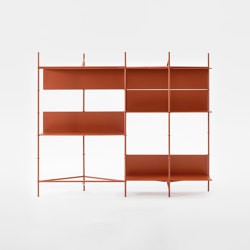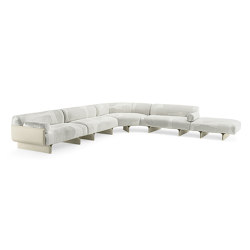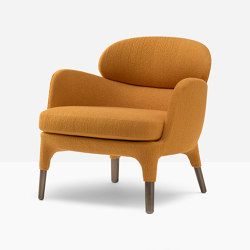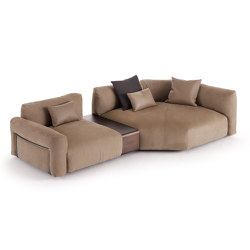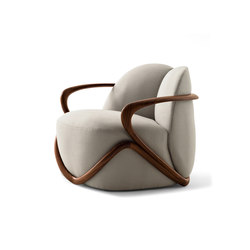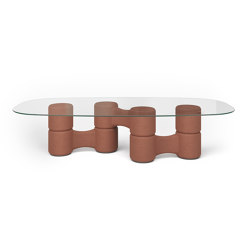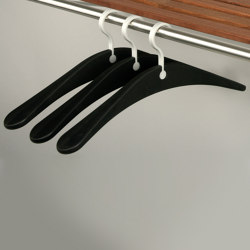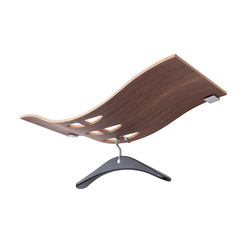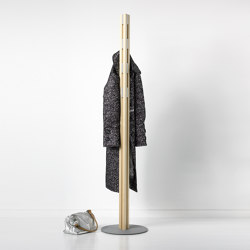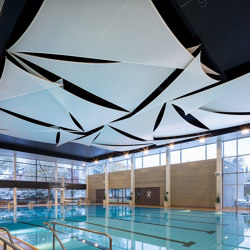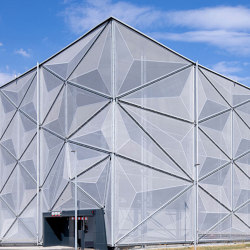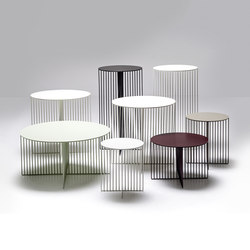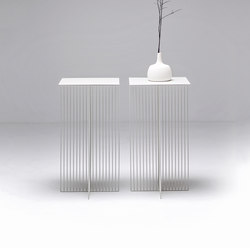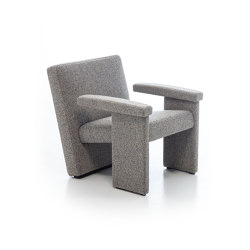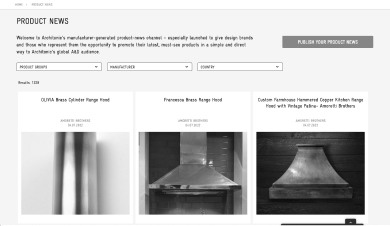About Ragnars
MORE ABOUT RAGNARS
HISTORY
The company was founded in the 1950s as a carpentry.
In 1978 Gustav Ragnar bought the company. Gustav had a background as an engineer working with product development at a large factory manufacturing doors. Ragnars is still today a family business owned by the second generation of Ragnars family members.
In the 1980s the carpentry manufactured among other things customized doors and glass walls, interiors for churches.
In the 1990s the company began to manufacture interiors for shops. H&M was a large customer. Other projects worth mentioning were interiors for the chamber in the Swedish Parliament building, the interiors for the Museum of Modern Art in Stockholm. During this decade, the company invested in modern machine technology from the German machine manufacturer Homag, an important key to be able to take the step into producing office furnitures.
At the end of 1990s there was an ”IT-boom” in Stockholm and all companies wanted to have their own spin and expression on their choice of furnitures for their office, to attract the best employees.
It became a standard that architects designed unique furniture solutions to create a ”corporate identity”.
Although Ragnars didn´t have it´s own brand, the company was the customers choice for most of the projects. During this time, working in close collaboration with architects, Ragnars employees built up the know-how of designing and manufacturing office furnitures. Architects especially appreciated the know how Ragnars had as a general carpenter being able to work with all types of materials and constructions.
1998 Ragnars was chosen by Orrefors Kosta Boda to manufacture their new flagship store at Madison Avenue on Manhattan. Architect was the Dutch concept creator Cornelis Jansen. At a meeting on a café on Madison Avenue, Cornelis and Johan Ragnar decided that Ragnars should develop their own products for office furnitures and build a new brand called Ragnars.Work.
2001 Johan Ragnar and Claes Skogman finalized the first products for the new brand Ragnars.Work. The concept was presented at Stockholm Furniture fair the same year. The products had rectangular forms and discrete electric height adjustable bases. High quality material was selected, for example handles in solid aluminium, fittings from Hettich, Electric height adjustable mechanisms from Linak, compact laminate and high pressure laminate from Formica, metal in glossy chrome. At the time, this was a new design language and the products became an immediate success.
From 2001 up until today, the original concept has expanded with more products and new concepts have been developed in collaboration with leading Swedish architects.
The Ragnars portfolio has expanded to several different collections including a wide range of everything from electrical height adjustable desk to conference furnitures and chairs.
The strength of customizing concepts for each new project is a way of working that Ragnars kept from the 90´s.
The machines has been replaced with new ”cutting edge” technology from Homag. Important projects where the customer and architect selected Ragnars are Pfizer Scandinavian head office in Stockholm, Mannheimer Swartling Lawyers in Stockholm, new Swedish Embassy in Washington ”House of Sweden”, new Opera House in Oslo, BMW Scandinavian Head office in Stockholm, Microsoft Swedish Head office in Stockholm, Vattenfall Head office in Stockholm.
Ragnars products has been introduced in several new countries with emphasis on northern Europe.
The future will demand new products for activity based working, IT solutions that will make architects work easier, for example products in 3D-models in different formats. Product standards that are adapted to Green Building standards. The topics about CSR Corporate Social Responsibility and Code of conduct will increase in importance. Ragnars has strategies for implementing the above mentioned demands.
HISTORY
The company was founded in the 1950s as a carpentry.
In 1978 Gustav Ragnar bought the company. Gustav had a background as an engineer working with product development at a large factory manufacturing doors. Ragnars is still today a family business owned by the second generation of Ragnars family members.
In the 1980s the carpentry manufactured among other things customized doors and glass walls, interiors for churches.
In the 1990s the company began to manufacture interiors for shops. H&M was a large customer. Other projects worth mentioning were interiors for the chamber in the Swedish Parliament building, the interiors for the Museum of Modern Art in Stockholm. During this decade, the company invested in modern machine technology from the German machine manufacturer Homag, an important key to be able to take the step into producing office furnitures.
At the end of 1990s there was an ”IT-boom” in Stockholm and all companies wanted to have their own spin and expression on their choice of furnitures for their office, to attract the best employees.
It became a standard that architects designed unique furniture solutions to create a ”corporate identity”.
Although Ragnars didn´t have it´s own brand, the company was the customers choice for most of the projects. During this time, working in close collaboration with architects, Ragnars employees built up the know-how of designing and manufacturing office furnitures. Architects especially appreciated the know how Ragnars had as a general carpenter being able to work with all types of materials and constructions.
1998 Ragnars was chosen by Orrefors Kosta Boda to manufacture their new flagship store at Madison Avenue on Manhattan. Architect was the Dutch concept creator Cornelis Jansen. At a meeting on a café on Madison Avenue, Cornelis and Johan Ragnar decided that Ragnars should develop their own products for office furnitures and build a new brand called Ragnars.Work.
2001 Johan Ragnar and Claes Skogman finalized the first products for the new brand Ragnars.Work. The concept was presented at Stockholm Furniture fair the same year. The products had rectangular forms and discrete electric height adjustable bases. High quality material was selected, for example handles in solid aluminium, fittings from Hettich, Electric height adjustable mechanisms from Linak, compact laminate and high pressure laminate from Formica, metal in glossy chrome. At the time, this was a new design language and the products became an immediate success.
From 2001 up until today, the original concept has expanded with more products and new concepts have been developed in collaboration with leading Swedish architects.
The Ragnars portfolio has expanded to several different collections including a wide range of everything from electrical height adjustable desk to conference furnitures and chairs.
The strength of customizing concepts for each new project is a way of working that Ragnars kept from the 90´s.
The machines has been replaced with new ”cutting edge” technology from Homag. Important projects where the customer and architect selected Ragnars are Pfizer Scandinavian head office in Stockholm, Mannheimer Swartling Lawyers in Stockholm, new Swedish Embassy in Washington ”House of Sweden”, new Opera House in Oslo, BMW Scandinavian Head office in Stockholm, Microsoft Swedish Head office in Stockholm, Vattenfall Head office in Stockholm.
Ragnars products has been introduced in several new countries with emphasis on northern Europe.
The future will demand new products for activity based working, IT solutions that will make architects work easier, for example products in 3D-models in different formats. Product standards that are adapted to Green Building standards. The topics about CSR Corporate Social Responsibility and Code of conduct will increase in importance. Ragnars has strategies for implementing the above mentioned demands.
MORE ABOUT RAGNARS

